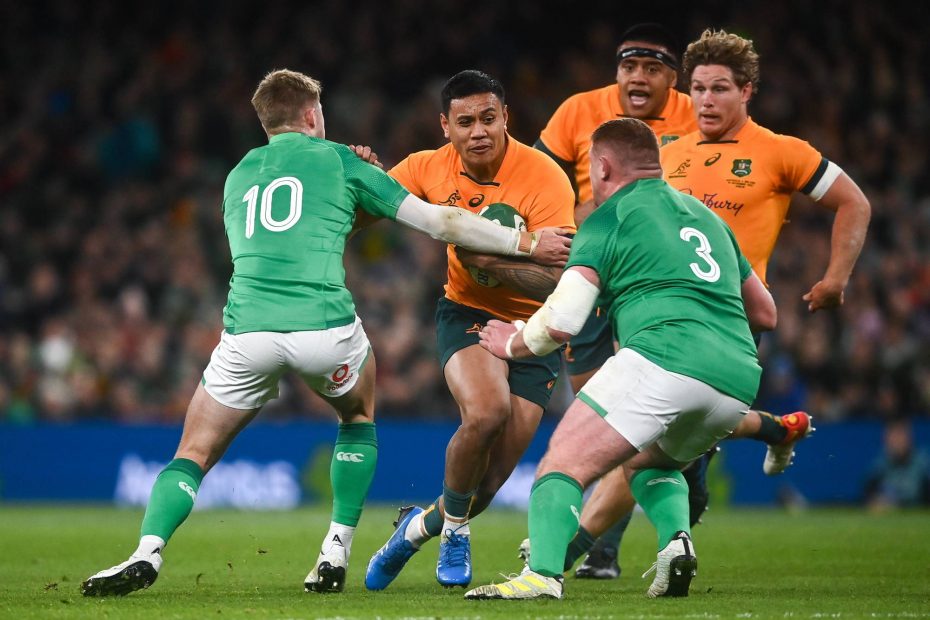It would seem appropriate a debate is had about how our elite players navigated the past season – obviously dominated by the World Cup.
For many loyal servants of our game their contribution to our game at the elite level may have come to an end: Specifically, Michael Hooper, Quade Cooper, Bernard Foley, Nick White, Marika Koroibete, James Slipper, Samu Kerevi, James O’Connor and Pete Samu – good men all who proudly wore our colours on the world stage over many years. To them, I say thanks for the memories.
In their absence, who are the players going forward which will constitute the core of the Wallabies over the next 2 years? The assessment criteria I applied to this group was that each player within this group would have played a significant number of tests, have nailed their position in the team and have performed consistently well at international level.
Against that background, the list is alarmingly short… It comprises Rob Valetini, Allan Alaalatoa, Angus Bell, Taniela Tupou, Len Ikitau and Mark Nawaqanitawase.
Len Ikitau runs the ball against Ireland. (Photo By David Fitzgerald/Sportsfile via Getty Images)
Beyond this core group, assessments become harder and can reasonably be expected to generate some level of debate. So perhaps it’s best to start with those players who have been provided multiple opportunities and have yet to establish a case for inclusion in the core group named previously – it is within this group whose development has stalled, have not nailed down their selected position, have ongoing discipline issues and/or have not established a basis for further consideration at Wallaby level, which is of most concern for fans and selectors alike.
Put simply, this list is huge and I believe clearly demonstrates why the Wallabies struggle at international level.
It includes Jordan Uelese, Dave Porecki, Jed Holloway, Ned Hanigan, Lachie Swinton, Rob Leota, Jordan Petaia, Tate McDermott, Suliasi Vunivalu, Ben Donaldson, Fraser McReight, Harry Wilson, Pone Fa’amausili, Lukhan Salakaia-Loto, Filipo Daugunu, Cadeyrn Neville, Darcy Swain, Tom Wright, Hunter Paisami Skelton and Andrew Kellaway.
The next list is a group who have had limited opportunity at the elite level but have demonstrated a passion, commitment and sound basic positional skills to indicate the possibility of joining the core group by the time the BIL tour finishes. Sadly, this group is alarmingly small. It’s Nick Frost and Tom Hooper.
I think an active discussion among Roarers is which players NOT named above are the most likely to force their way into the selection frame over the next two seasons.
Not included in any of the lists above are Noah Lolesio and Carter Gordon, who provide a case study of what is rotten at the core of our current selection and player development systems.
Samu Kerevi. (Photo by Joe Allison/Getty Images)
Take Lolesio first. He was selected with minimum Super Rugby behind him and often played behind an overwhelmed forward pack against strong opposition. He also had the misfortune to often have to play outside Nick White and Jake Gordon. Against the odds, he actually performed better than could reasonably be expected of a player so inexperienced – a fact evidenced by the team winning multiple games against Tier 1 teams whilst he was at the helm. He was also responsible for the Wallabies’ outstanding come-from-behind win against Wales on the 2022 European tour, when he replaced Ben Donaldson.
Against this background, why was Lolesio’s selection always problematic under Dave Rennie? Even more inexplicably, why was he not even included in the former coach’s World Cup squad, given Cooper and Foley were to be axed?
When selected, Carter had less Super Rugby experience than Lolesio, had no backup fly half and was handed the goal kicking duties as well. Put simply, Carter was set up to fail and so it should come as no surprise that he did.
I am fearful that Lolesio and Carter may not have the resilience and confidence to overcome their appalling treatment and reach their potential. If they can’t recover, it will be a tragedy for each of them and we, the fans, and our beloved Wallabies will be much the poorer.
Loading…
